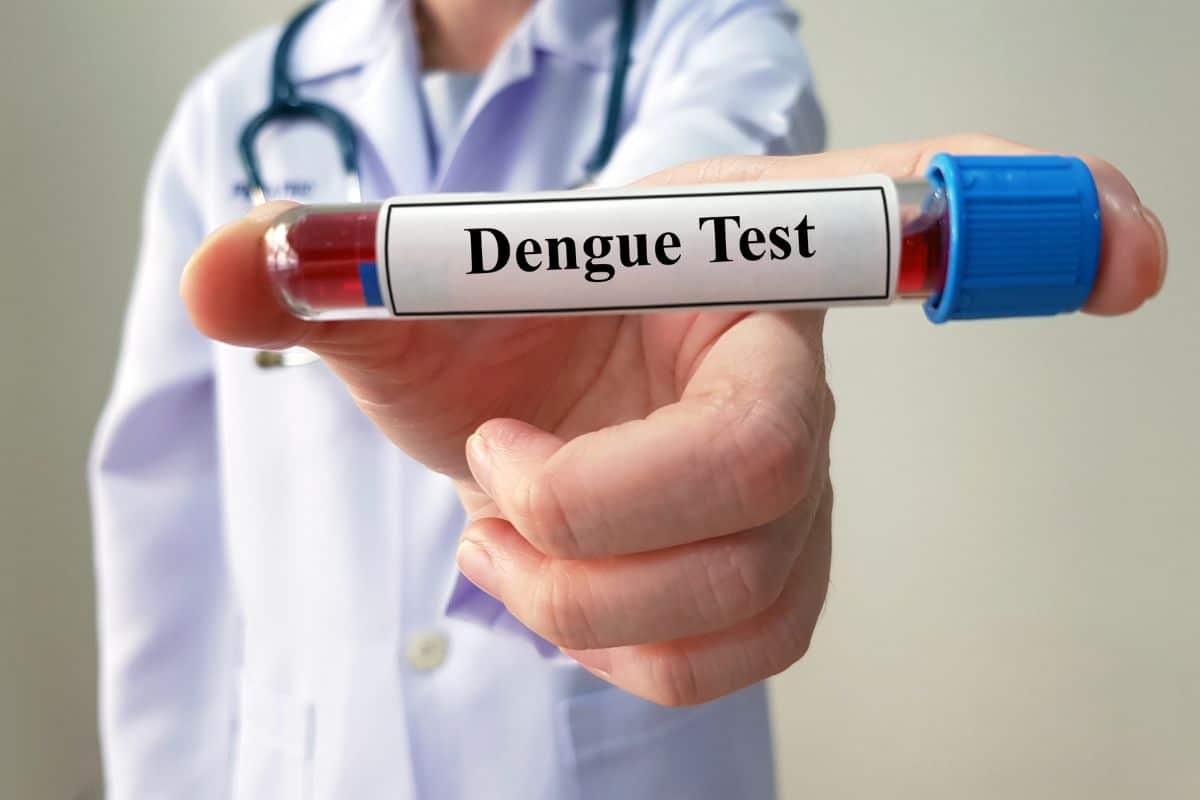A new study, conducted by researchers from the Society for Medical Virologists in Bangladesh and in partnership with the US-Bangla Medical College, has made an important discovery regarding dengue patients and the tests used to diagnose the disease. The study looked at 197 people who had been experiencing symptoms similar to dengue for about a week.
What they found is that some patients who show dengue-like symptoms might get a negative result when they take the commonly used NS-1 antigen test. However, this research suggests that they could still be infected with the dengue virus transmitted by mosquitoes.
The study, titled “Performance of Dengue NS-1 Test and Dengue Virus Serotype Determination Amid Ongoing Dengue Outbreak,” was led by Dr. Ruksana Raihan, an associate professor in the microbiology department at US-Bangla Medical College and the Science Affairs Secretary of the Society for Medical Virologists, Bangladesh (SMVB).
In this study, the researchers used three different types of tests – the dengue NS-1 test, the antibody test, and the PCR test – on the 197 people who were suspected of having dengue. Out of this group, the PCR test was able to identify the dengue virus in 68 individuals, which makes up about 34.5% of the people tested. Interestingly, 28 out of these 68 patients, which is about 41%, received a negative result when they took the NS-1 test.
Getting a negative NS-1 test result might make people think they don’t have dengue, but it can lead to complications later on. According to the Society for Medical Virologists in Bangladesh (SMVB), this can make it tough for doctors to treat them effectively.
Related: Is it Possible to Detect Malaria without a Blood Test?
The study also looked at the different types of dengue found in the patients. Out of the 68 people who tested positive for dengue using the PCR test, 63 had the Den-2 variant, four had Den-3, and one had both Den-2 and Den-3 variants.
Researchers believe that NS-1 test results are more likely to be negative when it’s a Den-2 variant infection. Normally, Den-3 was more common in Bangladesh in recent years, but this study suggests that Den-2 is more prevalent now. This could explain why so many NS-1 results were negative.
This discovery tells us that it’s crucial to consider other ways of diagnosing dengue, especially in areas where certain types of the virus are more common. The findings from this study give us important insights into how tricky it can be to diagnose dengue and emphasize the need for a comprehensive approach to deal with this disease transmitted by mosquitoes.
The news was first published at tbsnews.net
